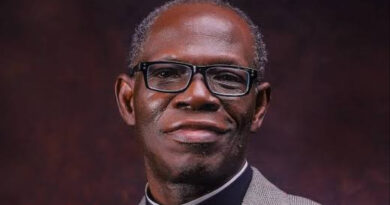Half of Americans Redefine Sin
A new study by the Cultural Research Center at Arizona Christian University reveals that a majority of Americans are redefining what they consider to be sin. The findings, part of the American Worldview Inventory 2025, show a striking shift in the nation’s moral compass and how people view right and wrong in modern society.
A Nation Redefining Sin
According to the research, Americans now view only half of 12 traditionally sinful behaviors as actually sinful. Acts such as gambling, drinking, and working on the Sabbath are now rarely viewed as sinful, while other behaviors like abortion, sexual fantasies, and cheating on taxes split public opinion evenly.
Meanwhile, only six of the twelve behaviors remain widely regarded as sinful, most of them connected to speech, sexuality, faith, and drug use.
What Americans Still Consider Sinful
The survey revealed that lying or deceiving others for personal gain tops the list of recognized sins, with 73 percent of adults labeling it as wrong. Among Christians, that number is even higher, with 99 percent of those holding a biblical worldview, 96 percent of born-again believers, and 81 percent of Catholics agreeing that deception is sinful.
Other acts widely condemned include blasphemy at 60 percent, worshiping other gods at 59 percent, sex outside of marriage at 55 percent, pornography at 55 percent, and recreational drug use at 54 percent.
In contrast, only 42 percent consider drunkenness sinful, 40 percent say the same of gambling, and a mere 23 percent view working on the Sabbath as morally wrong.
Divided Views on Moral Gray Areas
The study shows that Americans remain deeply divided on certain issues. Abortion continues to be one of the most polarizing moral topics, with about half of all adults calling it sinful. Among those holding a biblical worldview, that number jumps to 93 percent, compared to just 19 percent of atheists and agnostics.
The same split appears around sexual fantasies outside of marriage and cheating on taxes, both of which hover near a fifty fifty divide among respondents.
ALSO READ: Ayurveda Centre Promotes Natural Healing in Lagos
Generational and Cultural Gaps
Dr George Barna, director of research at Arizona Christian University, notes that attitudes toward sin differ sharply across generations and cultural backgrounds.
“Younger adults, especially Gen Z, are significantly less likely than older Americans to see traditional behaviors as sinful,” Barna explained. “This shift aligns with the broader redefinition of morality in society.”
The report highlights that Gen Z adults currently make up less than ten percent of the US adult population, but when all members reach adulthood, they will account for nearly four times that proportion.
In addition, atheists and agnostics, now around a quarter of all adults, are among the fastest growing demographic groups, alongside Asian Americans, who also showed lower agreement with traditional moral views. These demographic shifts, Barna said, are key drivers of America’s changing moral landscape.
Cultural Forces Shaping Morality
Barna believes that the moral transformation of the United States stems from social turbulence in the past decade, ranging from family breakdown and changing relationship norms to shifting attitudes toward faith and personal ethics.
“America is being transformed from a Bible honoring society into one that is more laissez faire or even aggressively secular in its views of sin and virtue,” he said. “The groups driving this change have momentum and cultural influence on their side.”
According to Barna, the nation’s moral code is increasingly being shaped by cultural trends rather than spiritual convictions. Together, these trends have made behaviors once condemned, like lying, casual sex, or idolatry, more acceptable in mainstream culture.
ALSO READ: Religious Violence and Persecution in Nigeria
A Call to Action for Christians
Barna’s findings come with a warning and a challenge for believers. If Christians in America hope to preserve a moral framework rooted in Scripture, he says they must become more intentional about teaching, modeling, and living out biblical values in daily life.
“As matters stand now,” Barna concluded, “the biblical worldview is poised to lose what little ground it currently occupies in America, including an increased loss of influence over our national morality.”
The research underscores a growing cultural crossroads, one where the nation must decide whether morality will continue to be anchored in biblical truth or reshaped by cultural preferences.
Content Credit: Ohidah Oluwaferanmi
Image Credit: Seekersguidiance.com




